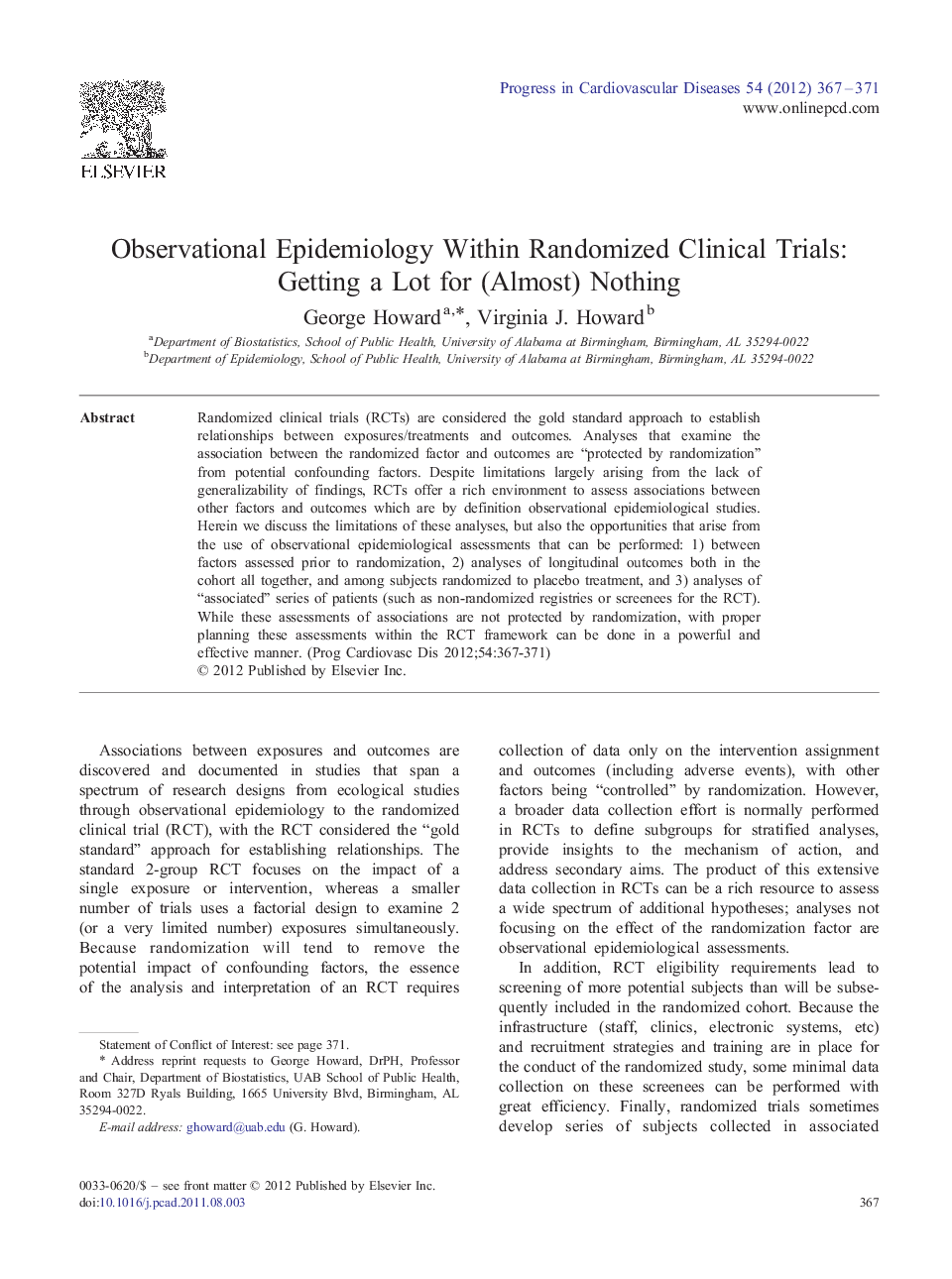| Article ID | Journal | Published Year | Pages | File Type |
|---|---|---|---|---|
| 3006337 | Progress in Cardiovascular Diseases | 2012 | 5 Pages |
Randomized clinical trials (RCTs) are considered the gold standard approach to establish relationships between exposures/treatments and outcomes. Analyses that examine the association between the randomized factor and outcomes are “protected by randomization” from potential confounding factors. Despite limitations largely arising from the lack of generalizability of findings, RCTs offer a rich environment to assess associations between other factors and outcomes which are by definition observational epidemiological studies. Herein we discuss the limitations of these analyses, but also the opportunities that arise from the use of observational epidemiological assessments that can be performed: 1) between factors assessed prior to randomization, 2) analyses of longitudinal outcomes both in the cohort all together, and among subjects randomized to placebo treatment, and 3) analyses of “associated” series of patients (such as non-randomized registries or screenees for the RCT). While these assessments of associations are not protected by randomization, with proper planning these assessments within the RCT framework can be done in a powerful and effective manner.
